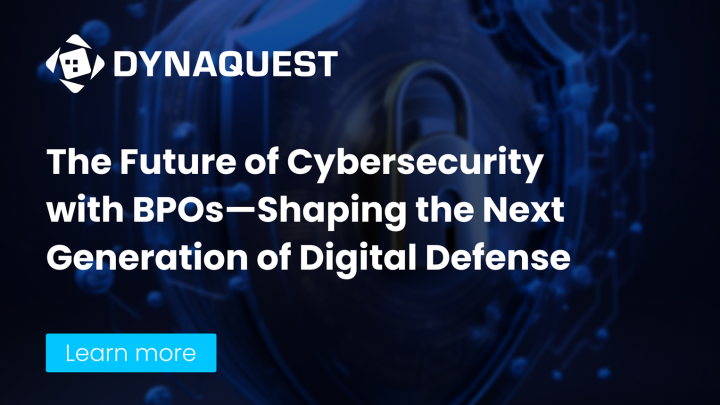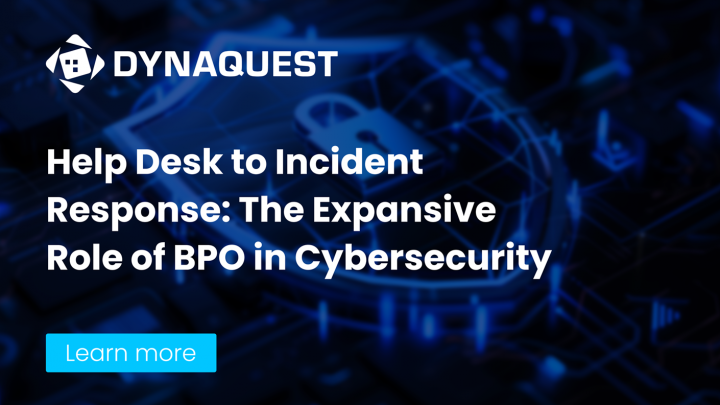The Future of Cybersecurity with BPOs—Shaping the Next Generation of Digital Defense
In Part 2, we saw how BPOs are going beyond reactive incident response and taking on a more proactive, strategic role in cybersecurity. Armed with advanced AI and automation tools, they are filling a critical talent gap and fortifying digital defenses for businesses globally. But the question remains: what does the future of cybersecurity look like with BPOs at the helm? In this final part, we will explore the long-term impact of BPOs on the cybersecurity landscape. As threats evolve, we’ll discuss how BPOs are preparing to confront new challenges such as IoT vulnerabilities, quantum computing risks, and more. We’ll also look at the emerging trends that will shape the future of cybersecurity and help businesses make informed decisions about outsourcing critical security functions. Reinventing Cybersecurity: Why BPOs Are Paving the Way for Future-Proof Security The role of BPOs in cybersecurity isn’t just about managing current threats—it’s about preparing businesses for the future. As cybercriminals adopt more sophisticated methods, such as exploiting vulnerabilities in IoT devices or cloud services, BPOs are positioning themselves at the forefront of the battle against these emerging threats. BPOs are already developing solutions for some of the most pressing challenges on the horizon, such as quantum computing and the potential risks it poses to encryption. By investing in research and innovation, BPOs are ensuring that their clients stay one step ahead of cybercriminals. The Long Game: How BPOs Will Evolve from Incident Response to Proactive Threat Hunters In the past, cybersecurity has largely been a reactive discipline—businesses would respond to threats as they occurred. However, the future of cybersecurity lies in proactive threat hunting, and BPOs are already preparing for this shift. Rather than waiting for a cyber attack to happen, BPOs are beginning to adopt a more offensive posture. Using tools like threat intelligence platforms and predictive analytics, BPOs can identify potential threats before they even materialize. This allows businesses to preemptively neutralize risks, minimizing the chances of a successful attack. For instance, BPOs that manage threat intelligence databases can track the activities of known cybercriminal groups, alerting businesses to emerging trends or targeted threats. This shift from reactive defense to proactive offense is a key reason why BPOs will play an even larger role in cybersecurity moving forward. The Partnership Dilemma: Should You Trust a BPO with Your Cybersecurity? While the benefits of outsourcing cybersecurity to a BPO are clear, some businesses remain hesitant to hand over such a critical function to a third party. This hesitation is often driven by concerns about data security and control. However, by choosing the right BPO and establishing clear communication protocols, businesses can mitigate many of these risks. It’s essential to select a BPO that is compliant with global security standards, such as ISO 27001 or SOC 2, and to regularly review their performance. Furthermore, businesses should treat BPOs not just as service providers but as strategic partners. By building a close working relationship with their BPO, businesses can ensure that they remain fully informed and in control of their cybersecurity posture. Conclusion: BPOs as Pioneers of the Cybersecurity Revolution The role of BPOs in cybersecurity is no longer confined to simple help desk support. Today, BPOs are taking on increasingly complex and mission-critical tasks, from real-time threat monitoring to full-scale incident response. Their ability to provide cost-effective, scalable, and specialized services makes them an invaluable resource in the fight against cybercrime. Looking ahead, BPOs will continue to shape the future of cybersecurity, helping businesses navigate new challenges and secure their digital environments. As threats evolve, so too will the BPO sector—leading the charge in future-proofing cybersecurity systems for the next generation.







